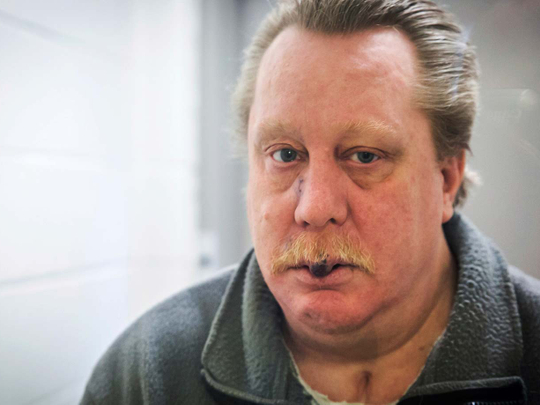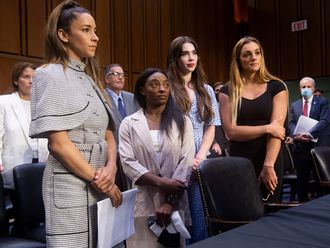
WASHINGTON: The US Supreme Court on Tuesday night stayed the execution of a convicted murderer-rapist after lawyers and advocates warned the punishment could subject him to intense suffering because of his rare illness.
Russell Bucklew had been scheduled to die by lethal injection in the state of Missouri.
"The United States Supreme Court has granted a stay of execution for Russell Bucklew, pending further review of his appeal," the Missouri Department of Corrections said in a statement which gave no reason for the decision.
It was Bucklew's second stay of execution in four years.
He has an uncommon vascular condition that leaves him with growths on his head and neck. This creates significant risk that subjecting him to lethal injection will result in torture, rights activists argue.
Defense lawyer Cheryl Pilate said his malformed veins could lead to an "execution atrocity" and there is "grave risk" of his meeting an excruciating end.
A tormented and painful death would violate the United States Constitution's Eighth Amendment prohibiting cruel and unusual punishment.
Bucklew, 49, has been on death row for two decades for the 1996 killing of a love rival and raping a former girlfriend.
He escaped from prison shortly after his arrest by hiding in a trash can. During his two days of freedom, he attacked with a hammer the mother of his ex-girlfriend. She survived.
Bucklew was to be put to death in 2014 but received his first stay of execution from the Supreme Court, after a botched lethal injection in Oklahoma stirred fresh debate about capital punishment.
The American Civil Liberties Union said there is "substantial risk" that Bucklew would choke during a lethal injection because his airway is compromised by a vascular tumor.
This would cause him to suffocate and undergo excruciating pain, the group said. It also warned that the tumor could burst, causing heavy bleeding and leading to "torturous" punishment.
The Inter-American Commission on Human Rights called for Bucklew's death sentence to be commuted.












